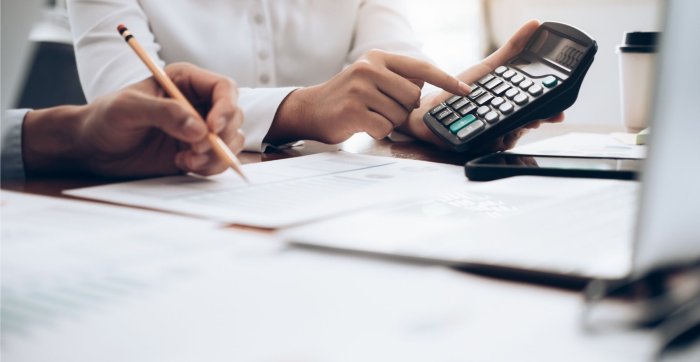
If you’re continuing to work from home during the 2021-22 income year, don’t forget to keep a record of the hours you work from home and the receipts for all work-related items purchased.
Keeping appropriate records now will allow you to use the method that will give you the best outcome when calculating your working from home deduction in future years.
Regardless of which method is used to calculate working from home expenses, the important thing for you is to continue to keep records of:
- The hours you work from home
- All receipts, including evidence of assets purchased as well as any other work-related items, like paper and ink.
To claim your working from home expenses you must:
- Be working from home to fulfil your employment duties, not just carrying out minimal tasks, such as occasionally checking emails or taking calls
- Incur additional expenses as a result of working from home.
If you’re a sole trader or business owner and your home is your principal place of business, see Deductions for home-based business expenses.
Expenses you can claim
The ATO has stated that the three golden rules for deductions still apply. Taxpayers must have spent the money themselves and not have been reimbursed, the claim must be directly related to earning income, and there must be a record to substantiate the claim.
Running expenses
Employees who work from home can claim the work-related proportion of their running expenses. These expenses are the cost of using equipment and utilities at your home for work and include:
- Electricity expenses associated with heating, cooling and lighting the area from which you are working and running items you are using for work
- Cleaning costs for a dedicated work area
- Computer consumables (such as printer paper, ink) and stationery.
- Home office equipment, including computers, printers, phones, furniture and furnishings – you can claim either the full cost of items up to $300
- The decline in value of equipment, furniture and furnishings in the area you use for work
- The cost of repairs to this equipment, furniture and furnishings
Telephone (inc. mobiles) + internet costs
If work or business calls can be identified from an itemised telephone account, then the deduction can be claimed for the work or business-related portion of the telephone account. A representative four-week period will be accepted as establishing a pattern of internet and telephone use for the entire year.
Telephone rental expense may be partly deductible if you are “on-call” or required to contact your employer or client on a regular basis.
Depreciation on equipment
Depreciation on home office equipment including office furniture, carpets, computer, printer, photocopier, scanners, modem etc. used only partly for work or business purposes can be apportioned.
The claim is based on a diary record of the income-related and non-income related-use covering a representative four-week period. The diary needs to show:
- The nature of each use of the equipment
- Whether that use was for an income-producing or non-income producing purpose
- The period for which it was used
Occupancy expenses
Claims for occupancy expenses are allowed only if the home is used as a place of business. Occupancy expenses include rent, mortgage interest, water rates, repairs, house insurance premiums.
The claim can be made as an apportionment of total expenses incurred on a floor area basis.
Warning: Being able to claim these expenses may affect your ‘main residence exemption’ for capital gains tax purposes if you sell your house in the future.
When is a home a place of business?
The following factors, none of which is necessarily conclusive on its own, may indicate whether, or not, an area set aside has the characteristics of a place of business:
- The area is clearly identifiable as a place of business
- The area is not readily suitable or adaptable for use for private or domestic purposes in association with the home generally
- The area is used exclusively, or almost exclusively, for carrying on a business, or
- The area is used regularly for client or customer visits.
If you use your home to carry out income-producing activities as a matter of convenience, you are not entitled to a deduction for occupancy expenses. It would be rare for an employee to be able to claim occupancy expenses.
Expenses you can’t claim
You can’t claim a deduction for the following expenses if you’re an employee working at home:
- Coffee, tea, milk and other general household items your employer may provide at work
- Equipment you buy for your children’s education – for example, iPads and desks
- Items your employer provides – for example, a laptop or a phone
- Any items where your employer pays for or reimburses you for the expense.
As an employee working from home, generally:
- You can’t claim occupancy expenses as mentioned above, such as rent, mortgage interest, water and rates
- There will be no capital gains tax (CGT) implications for your home.
How to claim work from home expenses
There are three methods to calculate home office expenses in 2021–22 depending on your circumstances:
- Temporary shortcut method – which is an all-inclusive rate of 80 cents per work hour. If you use the shortcut method, you can’t claim any other working from home expenses, including decline in value of office furniture and equipment. The ATO will allow a rate of 80 cents per hour from 1 March 2020 to 30 June 2022 for all additional running expenses.
- Fixed rate method – which allows taxpayers to claim 52 cents per work hour instead of recording all their actual expenses for heating, cooling, lighting, cleaning and the decline in value of furniture. You must have a dedicated work area, like a home office, that you use when working from home.
- Actual cost method – this method allows taxpayers to claim the actual work-related portion of all their running expenses, which need to be calculated on a reasonable basis.
You can use the method that best suits your circumstances. But make sure you meet the criteria and record-keeping requirements for the chosen method.
For further information and expert assistance with your tax return, contact our KMT accountants today!
This is general advice only and does not take into account your financial circumstances, needs and objectives. Before making any decision based on this document, you should assess your own circumstances or professional advice from your accountants at KMT Partners.


